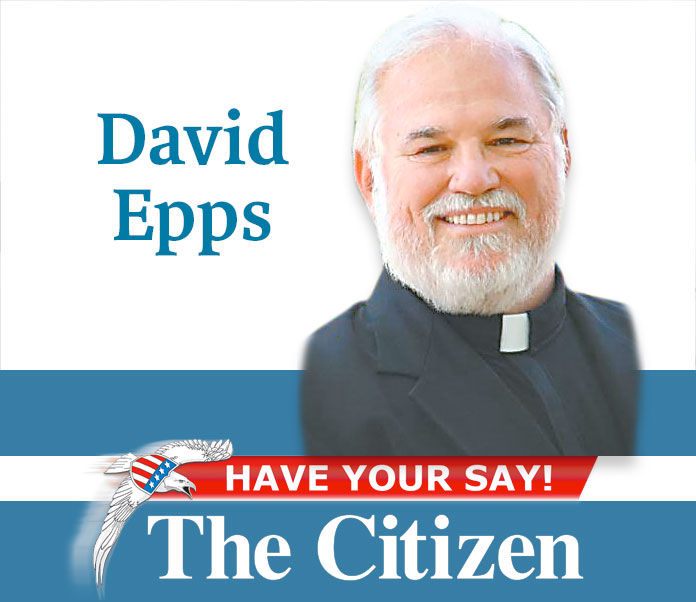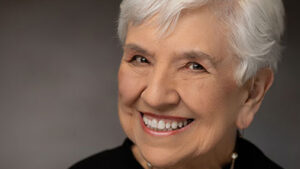The other day, during a storm, power went out for much of the county in which I live. At our home, the power wasn’t back on for about ten hours.
I didn’t know how long it would be out but I did know that there were employees and contractors of the power company out in the storm working to restore power. I said to my wife that I was glad they were providing “essential services.”
Some “essential services” are easy to understand. Hospitals provide essential services. Law enforcement and fire service are essential services. The purchase of food and fuel is essential.
Truckers provide essential services since nothing would be in the stores without them. The military, the postal service, delivery services such as FedEx, UPS, and Amazon, to name a few, are among those services deemed as essential. There are countless others, of course.
Yet, almost without exception, churches and the provision of spiritual care have been categorized, by many state and local governments, no less, as “non-essential.” This, in a country that designates abortion mills and liquor stores as “essential businesses.”
In a nation where over half of the population believes in the non-constitutional concept of “separation of church and state,” national, state, and local governments have demonstrated that, when it fits into their plans, the state, can indeed, impose its will on religion.
For the most part, because they are responsible leaders, clergy are trying to protect their people from the coronavirus and are willingly complying with the government guidelines. But that doesn’t erase the fact that the state is ordering the closing of churches and the cessation of public worship services that do not fit very narrow guidelines.
The very first amendment to the Constitution of the United States reads, “Congress shall make no law respecting an establishment of religion, or prohibiting the free exercise thereof; or abridging the freedom of speech, or of the press; or the right of the people peaceably to assemble, and to petition the Government for a redress of grievances.”
Two things stand out in light of current conditions: (1) “prohibiting the free exercise thereof; or abridging the freedom of speech,” and (2) “the right of the people peaceably to assemble…” Yet, the government(s) have done just that — they have prohibited the free exercise of religion and they have forbidden the people to peaceably assemble except under their strict conditions. And if the peaceable assembly is forbidden, is not the freedom of speech also denied?
The governments’ ham-handed mandates, however well intentioned, is wrong. Would it not have been better to use persuasion of religious leaders before resorting to the force of edict and the threat of arrest?
The mayor of New York City has threatened non-compliant religious organization with permanent closure. Those are his words … he threatens to permanently close churches, synagogues, and other houses of worship. He has also encouraged religious believers to inform on their leaders. Welcome to the Soviet Union.
What is really dismaying about the term “non-essential” as it applies to faith communities is that even a number of those within the community itself agree with the designation! I suspect that there are even clerics who would see their churches and synagogues as “non-essential.”
If something is truly non-essential then it is not far from being “unimportant,” or “unnecessary,” or even “undesirable.” In the former Soviet Union, priests and bishops were considered and were called “parasites” by secular leaders. History records that the Soviets and their satellites tried to destroy the church and, over a period of seventy years, systematically murdered hundreds of thousands of clergy and millions of believers.
Now, the United States is not the Soviet Union. Not yet, anyway. But the warning signs are there. Leftism in America, which despises orthodox biblical Christianity, is on the rise. As long as the church stays in its place, remains behind closed doors, keeps silent, and does what it is told, then all will be well unless, and until, faith communities are seen as undesirable.
Having said all this, our church, and the churches in our diocese, are trying to comply as much as possible with the COVID-19 guidelines, including the shelter in place edicts. Adjustments are being made, some activities have been cancelled, other meetings postponed, and a handful of people are trying to live stream the services. Other innovations are taking place. All this because we understand the crisis and we care for the safety of our people and for the safety of the larger community.
But what about next time? And there will be a next time. What if there’s an energy crisis? Can and will the government shut down the churches to conserve energy because they are “non-essential”? What if there is a shortage of suitable property? Can and will the government order the churches closed and eminent domain imposed? Eminent domain is the power of a state or national government to take private property for public use. And who decides what the highest and best use of the land is? The government decides.
This year, for the first time in the history of the republic, the churches of American will be virtually empty on Easter, Christianity’s highest and holiest day. In days past, when there was a national crisis, people flooded to the churches to pray and seek comfort. As recently as 9/11, following the terrorist attacks on over 3,000 innocent citizens, church attendance swelled. Not now.
Now the believers are to buy into the lie that churches are non-essential and cower in fear alone and at home. Even the President and his COVID-19 medical task force do not practice social distancing during the daily press conferences as they crowd together on the dais in a crowded press room. But you religious folk must limit your meetings to 10 or under unless you can guarantee at least a six-foot separation.
I get the purpose. I understand the point. But, again, what about next time? In some countries, pastors are ordered not to speak about abortion. In others, a pastor who speaks against an LGBTQ lifestyle can be charged with a hate crime. What about a pastor or priest who declines to marry a same-sex couple? Will he be in trouble? Yes, to all of the above. Once the government encroaches, it almost never draws back but only increases its interference.
Whether one holds to a biblical or evolutional progress of man, worship has always preceded government. Ancient man sought out and worshipped “the Other” before human systems were devised. Worship was deemed essential before government was conceived. Corporate worship in Christianity is not just essential, it is biblically mandated. In a conflict between serving God or man, biblically, devotion to God wins every time.
In the New Testament, it is clear that the Church is not a creation of man but is divinely instituted. As such, it is the most essential of organizations in the history of mankind.
Three times I have been threatened with the possibility of legal action or jail unless I revealed what someone told me in the Rite of Reconciliation, which is our term for sacramental confession. Once was on the stand in a courtroom. Thrice, I have respectfully declined, knowing that I might be jailed.
If the issue is right, I am willing to take a stand. This particular issue, at least at this point, is not the time or the issue for the church to stand and resist. But, if what I fear will be the encroaching role of government in the life of the church, the time is coming.
[David Epps is the pastor of the Cathedral of Christ the King (www.ctk.life). During the crisis, the church is live streaming at 10:00 a.m. on Sundays at http://www.facebook.com/cctksharpsburg/. He is the bishop of the Diocese of the Mid-South He may contacted at [email protected].]












Leave a Comment
You must be logged in to post a comment.